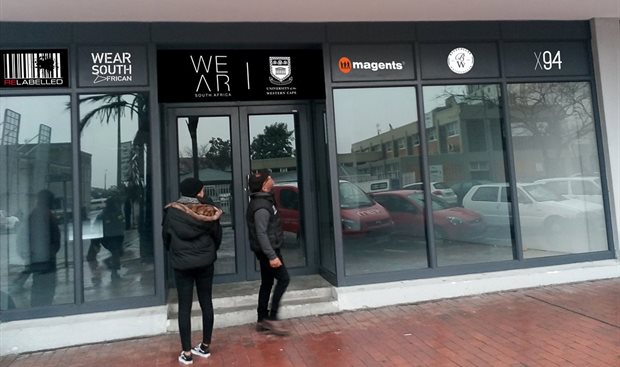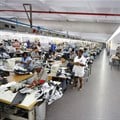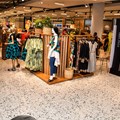 |
WearSA is a movement driven through the collective vision of a local network of South African fashion industry activists striving to make a difference through design, manufacturing and retail in the clothing and textile industry. The key stakeholder is the Southern African Clothing & Textiles Workers Union (SACTWU).
The new retail space, launching on 15 October, is said to be the first design and entrepreneurship incubator store of its kind in South Africa. Eighteen students have been identified as the first intake of the incubator store and they have received training in every area relevant to this sector. Students who work and learn in this incubator will receive a monthly stipend from WearSA.
Pep Clothing celebrates 50 years of local production
Pep Clothing is celebrating 50 years of production in South Africa. The company, which is SA’s largest clothing manufacturer under one roof, has reached this milestone birthday despite operating in a strained manufacturing environment…
13 Aug 2019
Students on campus will have direct access to a space that focuses on the growth and development of knowledge of the local manufacturing industry. WearSA also recognises that in order to encourage students to wear locally manufactured clothing, it needs to consider affordability, which is why prices have been adjusted accordingly.
The store will stock garments from the following well known local brands: Magents, X94, DOD, Blue Collar White Collar and WEAR.
Foschini collaborates with local fashion brand Burgundy Fly
Foschini has announced its collaboration with Burgundy Fly, a woman-focused fashion brand based in Gauteng, founded by Nobesuthu and Nhlanhla Ndlovu…
11 Oct 2019
Promoting entrepreneurship, local procurement
“It is a pioneering concept to promote local procurement and hence local jobs, while at the same time providing practical entrepreneurial development skills to students,” said Andre Kriel, general secretary: South African Clothing and Textile Workers Union (SACTWU).
Charleen Duncan, director: Centre for Entrepreneurship and Innovation at UWC, said it is crucial for students to think about job creation and not only job seeking. “We want to build an entrepreneurial mindset and a pioneering spirit in all UWC graduates. This opportunity exposes students to the local manufacturing as well as the retail sectors,” said Duncan.
“Incubators are vital within an academic space if we want to enhance the development of an entrepreneurial mindset. The store will also be a space for student designers to work with established designers and to have an opportunity to sell their garments. The importance of investing in youth, innovation, entrepreneurship, and the manufacturing sector cannot be ignored if we want to meet the goal of creating the additional 11 million jobs by 2030 that the National Development Plan refers to.”
Ackermans deal with Universal Footwear creates over 400 jobs
Ackermans has partnered with footwear importer and distributor, Universal Footwear, to locally design, source and produce its leather sandals…
1 Oct 2019
Wayne Van Der Rheede, CEO of WearSA, added: “This is a first for Wear South African and Proudly South African in our campaign to strengthen ‘Buy South Africa First’, ‘Buy Locally Designed Manufactured Apparel’. The decision to implement this incubator store by the University of the Western Cape shows foresight by contributing meaningfully to address the high unemployment rate in our country.”
SACTWU is in support of this initiative as it aligns with the broader vision of increasing job opportunities and strengthening the clothing and textile sector. “We hope that important teething lessons can be learned from this initiative, and for its successes to be duplicated at other universities,” Kriel concluded.



